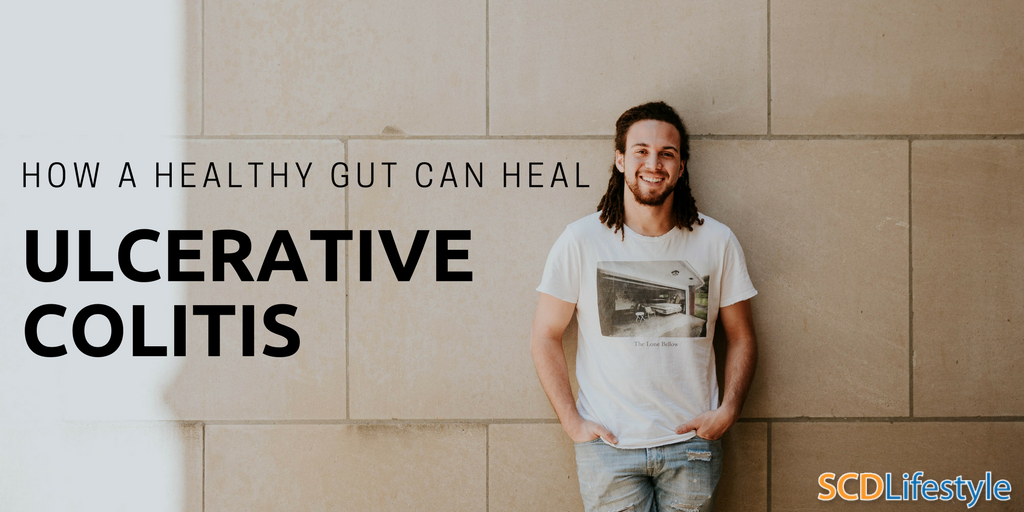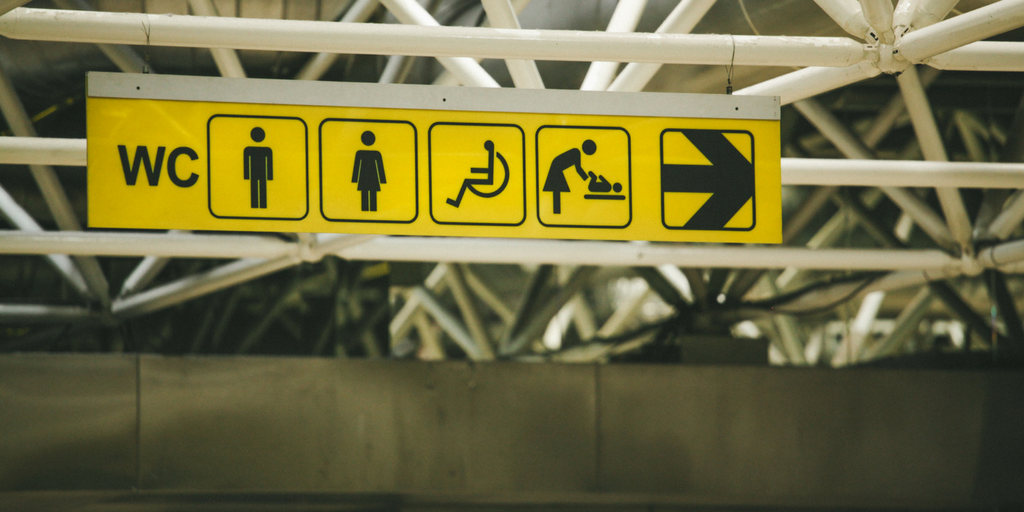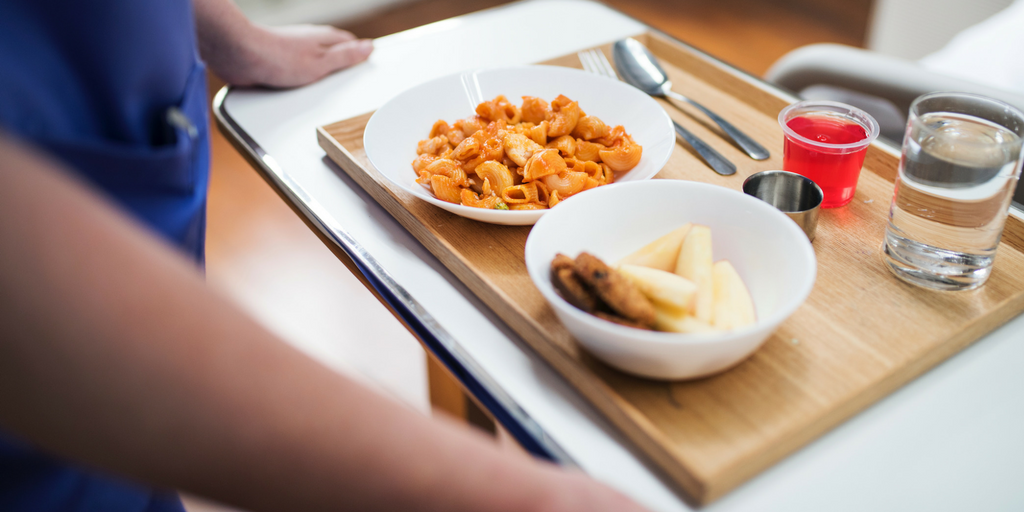How To Treat And Prevent Ulcerative Colitis Flares Naturally

The connection between our physical and mental state is strong – so strong that experts actually classified Ulcerative Colitis as a psychosomatic disease in the 1930’s.
It’s the reason those with Ulcerative Colitis are twice as likely to suffer from depression and what makes stress one of the top triggers for a flare.
For so many with Ulcerative Colitis, this connection results in a vicious cycle that often resembles something like this:
Stressful event –> UC Flare –> Depression/anxiety –> Flare becomes worse –>
Increased depression/anxiety –> Inability to perform daily tasks and manage flare
And if you’re thinking these mental and physical symptoms have to be treated separately, we have good news for you.
The microbiome in the gut has just as much to do with depression as it does the painful cramps and diarrhea that come with UC.
Read on, as we dive into all the details of Ulcerative Colitis and walk you through how to overcome the mental and physical symptoms of this disabling condition (without medication or surgery).
What Is Ulcerative Colitis?
Ulcerative Colitis (UC) is a chronic inflammatory bowel disease (IBD) distinguished by inflammation in the large intestine (rectum and colon). Inflammation appears in a continuous pattern on the innermost lining of the digestive tract known as the mucosa.
There are 4 different types of UC (each named for the exact location of the inflammation):
- Ulcerative proctitis – rectum (most common)
- Proctosigmoiditis – rectum and sigmoid colon
- Left-sided colitis – left-sided colitis is when inflammation is in the left side of the colon
- Pancolitis – entire colon
Symptoms of Ulcerative Colitis typically develop slowly over time.
In the active phase, symptoms include:
- Diarrhea, often with blood or pus
- Abdominal pain and cramping
- Ulcers (these form in places where inflammation has killed the cells lining the colon)
- Weight loss (due to pain when eating and absorption issues)
- Rectal pain
- Fatigue and fevers
- Eye pain, skin rashes and joint pain (less common)
Nearly 3 million Americans suffer from Inflammatory Bowel Disease and over 900,000 of those have Ulcerative Colitis. UC affects everyone differently and can range from mild symptoms all the way to a life-threatening state.
Ulcerative Colitis can appear at any age, but often peaks between the ages of 15 and 30. Early detection is most optimal for the long-term management of this chronic, debilitating condition.
How Is Ulcerative Colitis Diagnosed?
A series of tests and tools are used to rule out other conditions and confirm a UC diagnosis. The most common tests are:
Colonoscopy or Sigmoidoscopy – A thin, flexible tube with a camera attached is inserted into the anus to detect any inflammation, ulcers or bleeding in the colon and rectum. A small sample of tissue (biopsy) may also be taken during the exam for laboratory analysis.
CT Scan – This test is used to determine if any complications are present and may also reveal how much of the colon is inflamed.
Blood Tests – Blood tests are used to check for adequate iron levels, as iron deficiency is a common complication of Ulcerative Colitis (due to the amount of blood lost with chronic diarrhea).
Stool Sample – A stool sample can help rule out bacterial or parasitic infections, as well as detect white blood cells (WBC). A high WBC count indicates inflammation somewhere in the body and can be a sign of Ulcerative Colitis.
Leukocyte Scintigraphy (WBC Scan) – White blood cells are attracted to sites of inflammation and this test can help determine where they gather. WBC’s are taken from a sample and are tagged with a harmless amount of radioactive substance. The blood is injected back into the body and a special camera is used to see where the radioactive white blood cells travel.
Is Ulcerative Colitis a Genetic Disease?
Nearly 15% of those with Ulcerative Colitis have a first degree relative who also suffers from the condition. In identical twins, the rate of UC is about 16%, whereas in non-identical twins that number drops to 4%.
The exact genes are yet to be determined, but the following highlights some of the newest research on genetics and Ulcerative Colitis:
- A total of 163 at-risk genes/loci have been identified in UC. A large study of 29,838 IBD patients (16,902 with Crohn’s and 12,597 with UC) recently identified three new loci in association with inflammatory bowel disease: NOD2, MHC, and MST1 3p21.
- IL-13 is the main interleukin responsible for the inflammation and chronic symptoms of UC. It causes epithelial barrier damage, reduces the speed of mucosal repair, and contributes to alterations of the tight junctions in the gut. The addition of IL-13 to cell cultures increases the flux of large molecules such as mannitol and lactulose and also affects the speed of mucosal repair by 30%.
- IL-10 is an anti-inflammatory cytokine which has a positive effect on UC. It inhibits the production of certain players (i.e TNF-?) that cause inflammation and the inactivation of IL-10 was shown to cause chronic ileocolitis (a specific type of UC) in mice, indicating a protective role within the mucosal layer.
So, what does this all mean?
Genetics certainly play a role when it comes to UC, but genetics alone aren’t enough to explain why IBD has jumped from 2 million people in 1999 to over the 3 million mark we’re seeing today.
Triggers for Ulcerative Colitis

Environmental factors are a BIG reason IBD is on the rise, as they can turn on the genes for Ulcerative Colitis in genetically susceptible individuals.
The most common environmental triggers of Ulcerative Colitis are:
Vitamin D Deficiency – Most popular for its role in bone health, vitamin D is rapidly gaining recognition for its role in chronic disease. This study of 504 IBD patients found that lower vitamin D levels were associated with a modest increase in disease activity. Improvement in the severity of intestinal inflammation was noted within 2 weeks of supplementing with Vitamin D.
Nonsteroidal Anti-Inflammatory Drugs (NSAIDS) – This study shows how NSAIDs affect the gut flora, which we now know to be extremely important when it comes to our general health. Another study demonstrated high doses, prolonged duration, and frequent use of NSAIDs were associated with an increased risk of UC.
Antibiotics – Antibiotics alter the gut microbiome and can interfere with the body’s ability to handle diverse bacteria. One study shows antibiotic use within the first year of life was more common among pediatric IBD cases. A similar analysis among adult IBD subjects revealed that individuals receiving 3 rounds of antibiotics 2 or more years prior to diagnosis had greater odds of suffering with IBD.
Viral and Bacterial Infections – Previous gastrointestinal infections (e.g., Salmonella spp, Shigella spp and Campylobacter spp) double the risk of developing UC. This study shows that out of the 918 UC patients tested, 21 (2.3%) were found to be positive for Campylobacter spp and those hospitalized for the infection had worse clinical outcomes (antibiotics are typically used to treat gut infections in hospitals).
For more information on stool testing, please read this post on why you should get stool testing done.
Stress – Many studies suggest that mood disorders and long-term psychological stress can trigger relapses in those who suffer from UC. Anecdotal evidence also concludes that stress is one of the top causes of a flare, most likely due to the effect stress has on the gut and the immune system.
Each of these triggers is tied to the gut in one way or another. Why? Read on, as we dive into why the gut is so important for managing Ulcerative Colitis.
Is My Immune System Attacking My Gut?
Over 70% of the immune system lies in the gut, which means the immune system is only as strong as the gut is healthy.
The mucosa is known as the “gut immune system” and serves as first line of defense against pathogens. The mucosal layer provides separation between the body and the gut, working to keep undesirable luminal (interior of the digestive tract) contents at bay as well as tolerate friendly bacteria.
A breakdown of the mucosal barrier, due to factors like stress or an inflammatory diet, allows contact between the intestinal tissue and bacteria, which can trigger a misdirected immune response against harmless antigens.
And the battle of autoimmunity begins…
This abnormal immune response is mediated by different cytokines – small cell-signaling protein molecules, which provoke inflammation. As the immune system continuously responds to the wrong signals, these cytokines help create chronic inflammation. Experts agree, they are directly responsible for damage to the mucosa.
The Result? Symptoms of Ulcerative Colitis.
And if this cycle isn’t interrupted, the inflammation becomes worse and further complications can surface.
Complications of Ulcerative Colitis
Complications of UC are classified as either local (affecting the intestines only) or systemic (affecting other organs of the body) and are most common with severe, long-standing inflammation:
Malnutrition – An estimated 62% of patients with UC experience malnutrition, which is likely due to less food intake, loss of fluids as a result of diarrhea, and the inability to absorb nutrients. The most common deficiencies include the micronutrients calcium, selenium, zinc, and magnesium and vitamins B12, A, D and K.
Autoimmune Comorbidities – Experts have shown that once one autoimmune disease develops, a person is at a much greater risk of developing additional conditions (including more autoimmune diseases). One study, which included 950 IBD patients (580 with CD and 370 with UC), found that 113 (31%) of the UC patients had one or more of the following: arthritis, ankylosing spondylitis, and psoriasis. Not only that, research shows that the risk of developing additional autoimmune conditions increases with one of the most common treatment methods for Ulcerative Colitis: antibiotics.
Mental and Emotional Symptoms – Researchers have linked the TLR2 protein (found in the gut flora) to the production of serotonin. Serotonin is a neurotransmitter that delivers messages to the brain and is known as one of the “feel good” hormones. An imbalance of bacterial flora (dysbiosis) can alter serotonin levels and contribute to depression and anxiety in those with Ulcerative Colitis.
Intestinal Perforation – Chronic inflammation and ulcers can weaken the mucosal wall and eventually rupture it. A perforated or ruptured colon can cause a life-threatening infection called peritonitis and warrants emergency surgery.
Colon Cancer – Patients with UC have an increased risk of developing colorectal cancer – an estimated 2% risk after 10 years, 8% after 20 years and 18% after 30 years of disease. The p53 gene may play a key role, as serum p53 antibodies were detectable in 9.3% of patients with UC.
Medical Treatment for Ulcerative Colitis

Anti-inflammatory drugs are often the first step in the medical treatment of Ulcerative Colitis, with the type, dose and duration all dependent on the severity of the condition. The most common anti-inflammatory medications are Asacol HD and mesalamine.
Corticosteroids, such as prednisone and hydrocortisone, work to reduce longstanding inflammation in severe cases. They are not suitable for long-term use due to side effects, such as diabetes, weight gain, osteoporosis, and many more.
And if patients don’t respond to these medications, immunosuppressants are typically the next option. They work to suppress the body’s immune response and the most common immunosuppressants are Humira and Remicade.
Antibiotics, pain relievers, iron supplements, and anti-diarrheal medications may also be recommended to help manage the symptoms of Ulcerative Colitis. In up to one-third of people with UC, surgery is performed and the most common procedure is an ileostomy.
If we consider the fact that most people with UC are diagnosed between the ages of 15 and 30 years old, this means relying on prescription drugs for nearly a lifetime…
How do these medications affect our long-term health?
Do they address the emotional symptoms?
Do medications address the root cause of autoimmunity?
Among all the questions, here’s what we DO know – healing the gut is a powerful thing and it can’t be overlooked when it comes to UC (and our overall health in general).
Can Probiotics Prevent Flares in Ulcerative Colitis?
It’s a well-known fact that probiotics promote healthy bacteria in the gut and work to strengthen the immune system. These popular gut health supplements are also proving to be effective in preventing flares in UC.
Ulcerative Colitis is a disorder where aggressive luminal bacteria attack the mucosa causing inflammation. Probiotics, on the other hand, can help alter the existing bacterial environment to promote less aggressive and more anti-inflammatory bacteria.
Experts also agree that any therapy or treatment that works at the level of the mucosa should be considered, since Ulcerative Colitis is a mucosal disease.
New Research on Probiotics and Ulcerative Colitis:
Escherichia coli Nissle is a non-pathogenic strain of E. coli that rivals some of the top medications for the treatment of UC. In a number of large clinical trials, researchers compared it to the medical drug mesalamine and was found to be just as effective for both inducing and maintaining remission over a 1-year period.
VSL#3 is another potent probiotic that has shown to be effective for those with UC. It has a combination of the following strains: Bifidobacterium breve, B. longum, B. infantis, Lactobacillus acidophilus, L. plantarum, L. paracasei, L. bulgaricus, and Streptococcus thermophilus. This study of 32 UC patients showed 77% of the patients went into remission after VSL#3 was administered for 6 weeks. *Consult a physician before using this medical food grade supplement.
With that said, perhaps the most powerful of all evidence for the effectiveness of probiotics is anecdotal. Ulcerative Colitis sufferers who address the gut (i.e diet, lifestyle, probiotics) report less symptoms overall and a decrease in the severity of existing symptoms.
And researchers continue to uncover what’s possible when we start to heal UC by addressing gut health.
The Leaky Gut – Autoimmune Connection
If you’ve been keeping up with our autoimmune series articles, you already know it’s nearly impossible to ignore a leaky gut as part of the cause and solution to autoimmunity.
Alessio Fasano, M.D. has been on the forefront of recent autoimmune disease research and published a paper titled “Leaky Gut and Autoimmune Diseases.”
His findings present the idea that in order for an autoimmune disease to develop, 3 conditions must all exist together:
- A genetic predisposition to autoimmunity (i.e. NOD2 gene in UC)
- An exposure to the environmental trigger (i.e. stress)
- Increased intestinal permeability (a.k.a. Leaky Gut Syndrome)
For those with Ulcerative Colitis, healing the gut means so much more than just physical healing – it means overcoming the mental and emotional symptoms as well.
Healing a leaky gut is one factor that’s in our control and it can be done step-by-step with the right plan.
How to Turn Off Autoimmune Disease

Maintaining remission requires getting to the root of the issue, and that is exactly what we’re here to help you do.
Hippocrates, the famous Greek physician, stated “all disease begins in the gut,” and some 2,000 years later Fasano and many other leading experts agree.
Ancient and current wisdom both suggest that powerful healing must begin in the gut.
We’ve hosted a free webinar called, “How to Turn Off Your Autoimmunity and Restore a Healthy Immune System.”
It’s completely free, and we walk you through how to address the health of your gut so that your immune system can stop attacking itself.
The topic of autoimmunity is complicated and the amount of information out there can be downright overwhelming. That’s why we’ve done the work for you and are grateful to support you on this journey.
– Jordan
P.S. – What is holding you back from healing? Let us know in the comments below 🙂
Did You Like this Article?
Subscribe to our newsletter to receive email notifications, some ways to find relief, and next steps.
